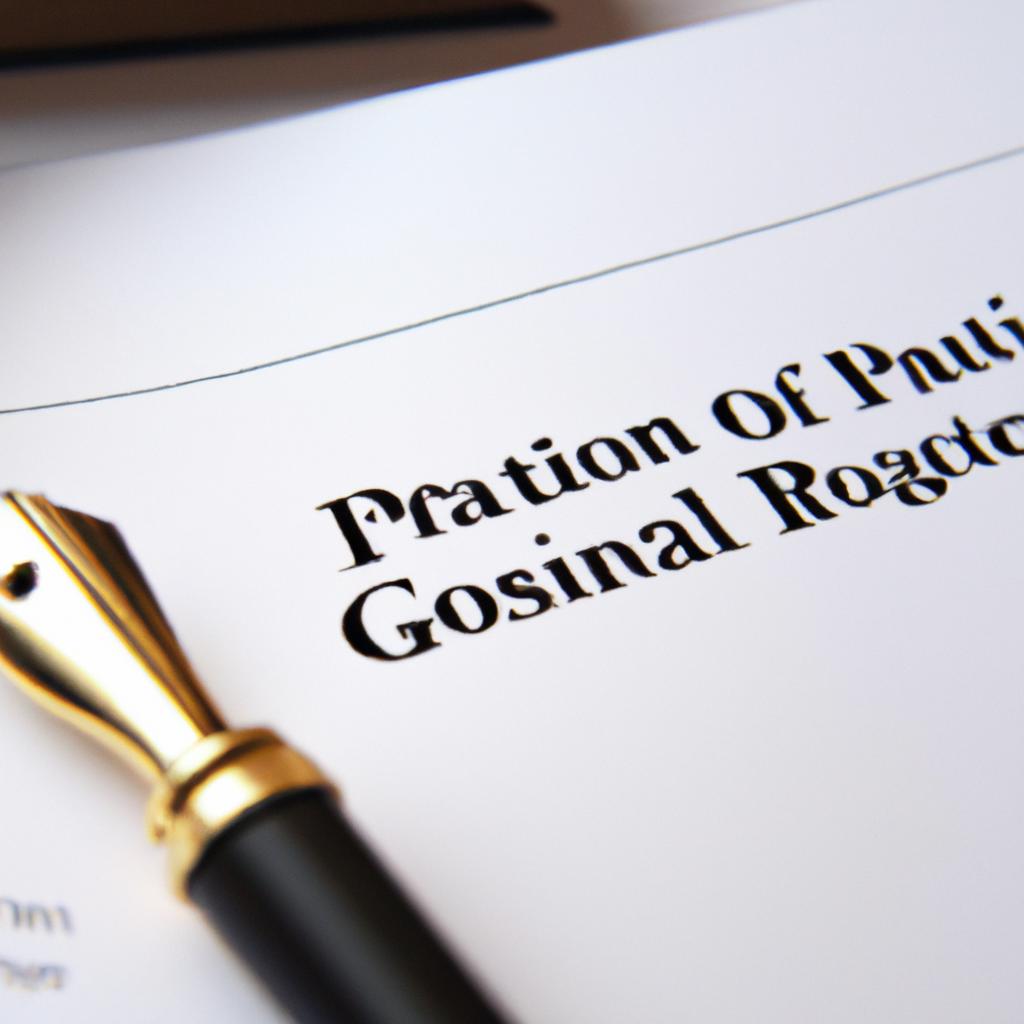As the old adage goes, “In this world, nothing can be said to be certain, except death and taxes.” While we may not have control over the former, we can certainly make sure our affairs are in order before our time comes. Finalizing a will is a crucial step in ensuring your loved ones are taken care of and your assets are distributed according to your wishes. In this article, we will explore the essential steps and considerations involved in crafting a comprehensive and legally binding will. As experienced attorneys specializing in estate planning at Morgan Legal Group, located in the heart of New York City, we are here to guide you through the intricate process of finalizing your will with precision and expertise.
Key Components of a Comprehensive Last Will and Testament
When finalizing a will, it is crucial to include all the key components that will ensure your wishes are carried out as intended. A comprehensive last will and testament should cover various aspects of your estate and provide clear instructions for your beneficiaries. Here are some essential components to consider:
- Executor: Designate a trustworthy individual to carry out your wishes and handle the distribution of assets.
- Guardianship: If you have minor children, specify who will be their legal guardian in the event of your passing.
- Asset Distribution: Clearly outline how your assets, including property, investments, and personal belongings, will be distributed among your beneficiaries.
- Debts and Taxes: Address any outstanding debts and tax obligations to prevent complications for your heirs.
Sample Asset Distribution Table:
| Asset | Designated Beneficiary |
|---|---|
| Family Home | John Smith (son) |
| Retirement Account | Sarah Johnson (daughter) |
| Jewelry Collection | Jane Doe (sister) |
By including these key components in your last will and testament, you can provide clarity and peace of mind for your loved ones during a difficult time. Consult with an experienced estate planning attorney, such as Morgan Legal Group in New York City, to ensure that your will is legally sound and properly executed.

Navigating the Probate Process: Ensuring Your Will Is Properly Executed
When finalizing a will, there are several important steps to ensure that the document is properly executed. One key aspect to keep in mind is to make sure that the will is signed in the presence of witnesses. This means that the testator must sign the will in front of at least two witnesses who are not beneficiaries. The witnesses must also sign the will to confirm that they witnessed the testator signing the document.
Additionally, it is essential to have the will notarized. This involves the testator and witnesses signing a statement in the presence of a notary public, who will then stamp the document with their official seal. Notarization adds an extra layer of protection to the will, making it more difficult for someone to challenge its validity in the future. By following these steps and ensuring that all legal requirements are met, you can navigate the probate process smoothly and ensure that your will is properly executed.

Minimizing Disputes and Challenges: Tips for Creating a Solid Will
When it comes to finalizing a will, there are several key steps to consider in order to minimize disputes and challenges that may arise in the future. By following these tips, you can ensure that your will is solid and legally sound:
- Be clear and specific: Make sure that your will clearly outlines your wishes and intentions. Be specific about who will inherit your assets and how they will be distributed.
- Seek professional advice: Consult with an experienced estate planning attorney to help you draft and finalize your will. They can provide valuable guidance and ensure that your will complies with all legal requirements.
| Tip: | Consider creating a revocable living trust to avoid probate and provide additional protection for your assets. |

Professional Assistance: The Importance of Consulting an Estate Planning Attorney
Consulting an Estate Planning Attorney for Finalizing Your Will
When it comes to ensuring that your final wishes are carried out as intended, consulting with an estate planning attorney is crucial. Estate planning attorneys specialize in navigating the complex legalities surrounding wills and trusts, ensuring that your assets are distributed according to your wishes. By seeking professional assistance, you can avoid common pitfalls and ensure that your estate plan is comprehensive and legally sound.
Some key reasons why consulting an estate planning attorney is essential for finalizing your will include:
- Legal Expertise: Estate planning attorneys possess the legal knowledge and expertise necessary to draft a will that adheres to state laws and regulations.
- Asset Protection: An attorney can help you mitigate estate taxes, protect your assets from creditors, and ensure that your loved ones receive their fair share.
- Contingency Planning: Attorneys can help you anticipate potential challenges and create contingency plans to safeguard your estate in the event of unforeseen circumstances.
Q&A
Q: What is a will and why is it important to have one?
A: A will is a legal document that outlines how you want your assets and belongings to be distributed after you pass away. Having a will ensures that your final wishes are carried out and can help prevent conflicts among your loved ones.
Q: How do I start the process of finalizing my will?
A: The first step is to gather all important information, such as your assets, debts, and beneficiaries. You can then consult with a lawyer or use an online will-writing service to help you create your will.
Q: What should I consider when deciding who to include in my will?
A: It is important to carefully consider who you want to include as beneficiaries in your will, including family members, friends, and charitable organizations. You should also think about who you want to appoint as the executor of your will to ensure that your wishes are carried out.
Q: Are there any specific requirements for making a will legally valid?
A: In order for a will to be legally valid, it must be signed and dated by the person creating the will, known as the testator, and witnessed by at least two individuals who are not beneficiaries in the will. It is also recommended to have the will notarized to further ensure its validity.
Q: What should I do after finalizing my will?
A: After finalizing your will, it is important to keep it in a safe place where it can be easily accessed by your executor or loved ones. You should also consider reviewing and updating your will periodically to reflect any changes in your life circumstances.
To Conclude
In conclusion, finalizing a will is a crucial step in ensuring your wishes are carried out after your passing. By following the guidelines and consulting with professionals, you can create a comprehensive and legally binding document that protects your loved ones and assets. Remember, updating your will regularly is just as important as creating it in the first place. So take the time to review and revise as needed to ensure your legacy is preserved exactly as you intend. Thank you for reading and good luck with finalizing your will!


